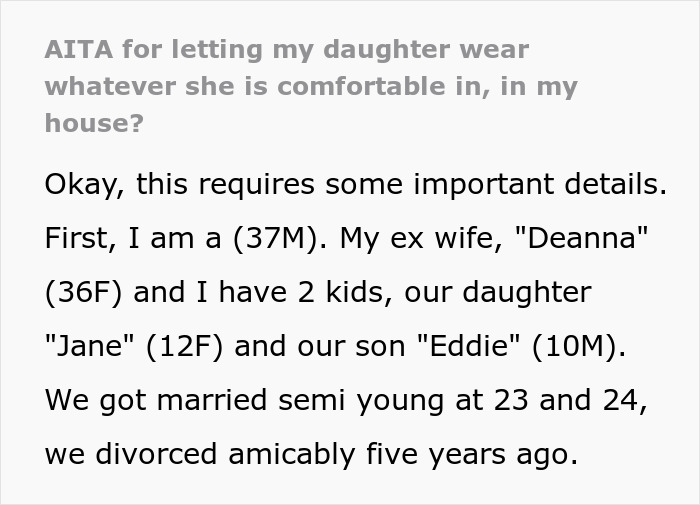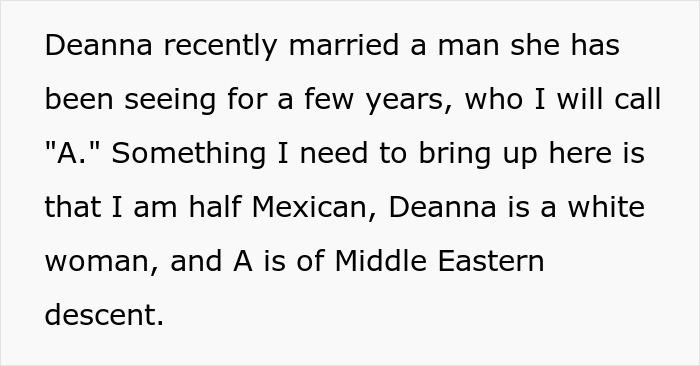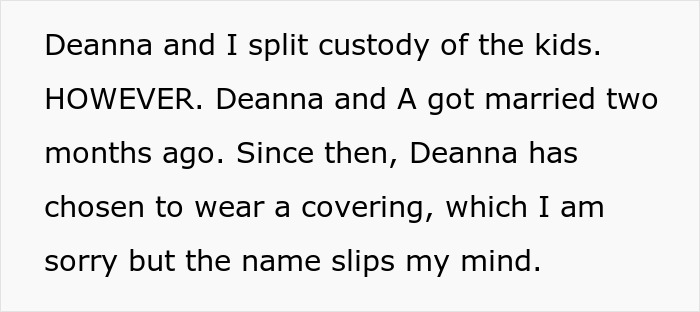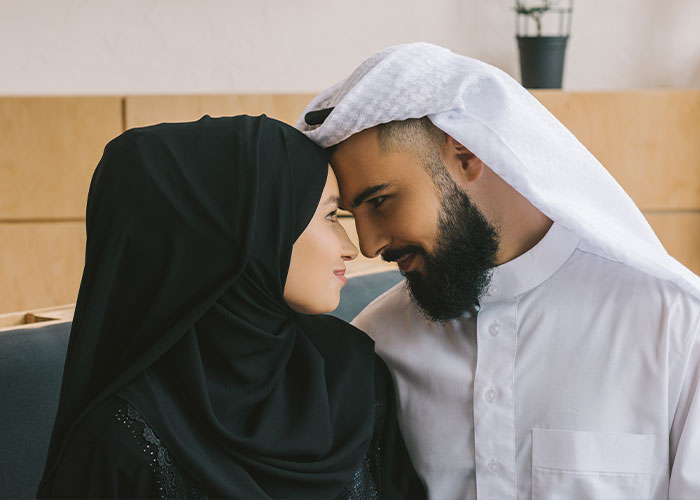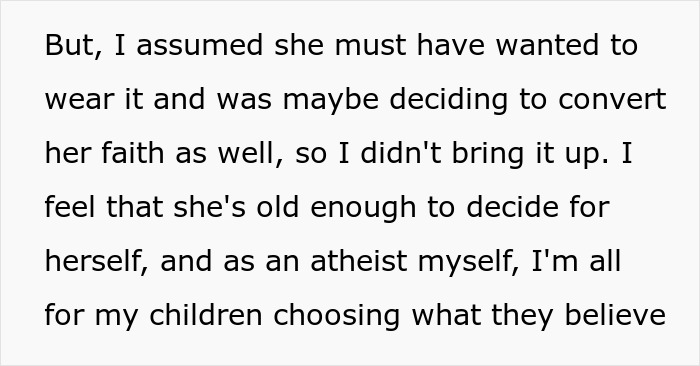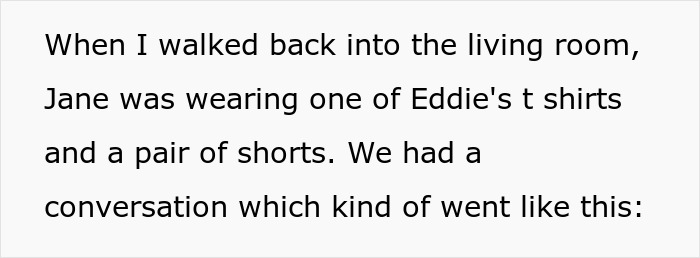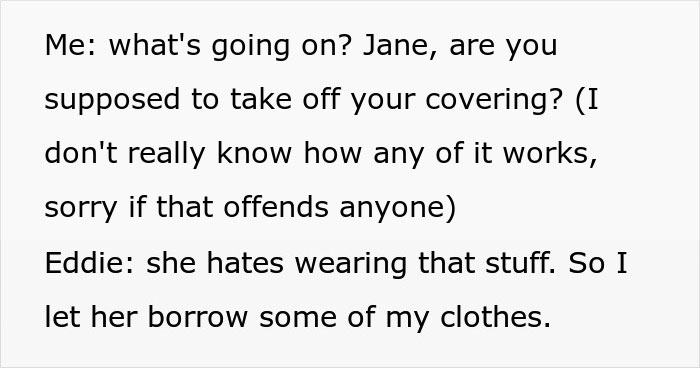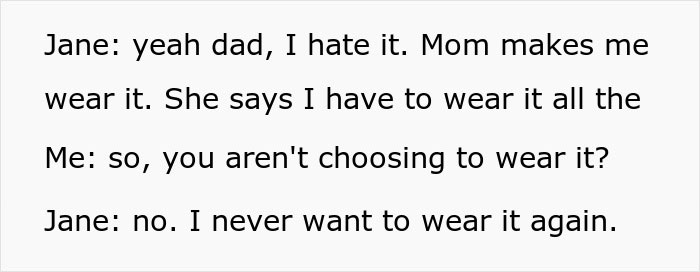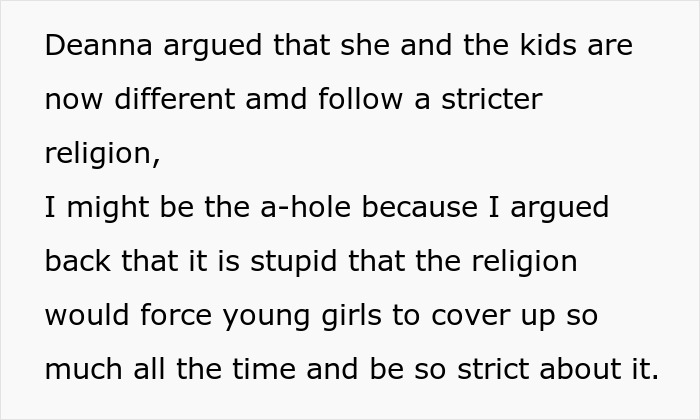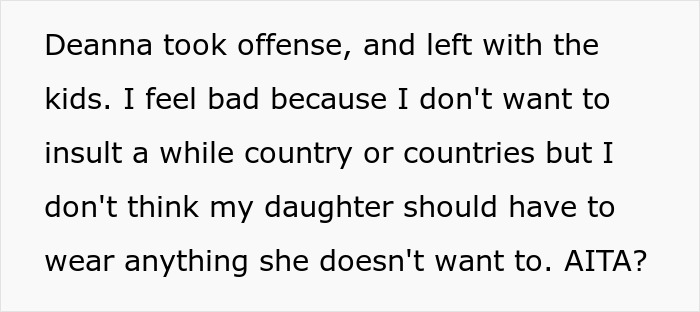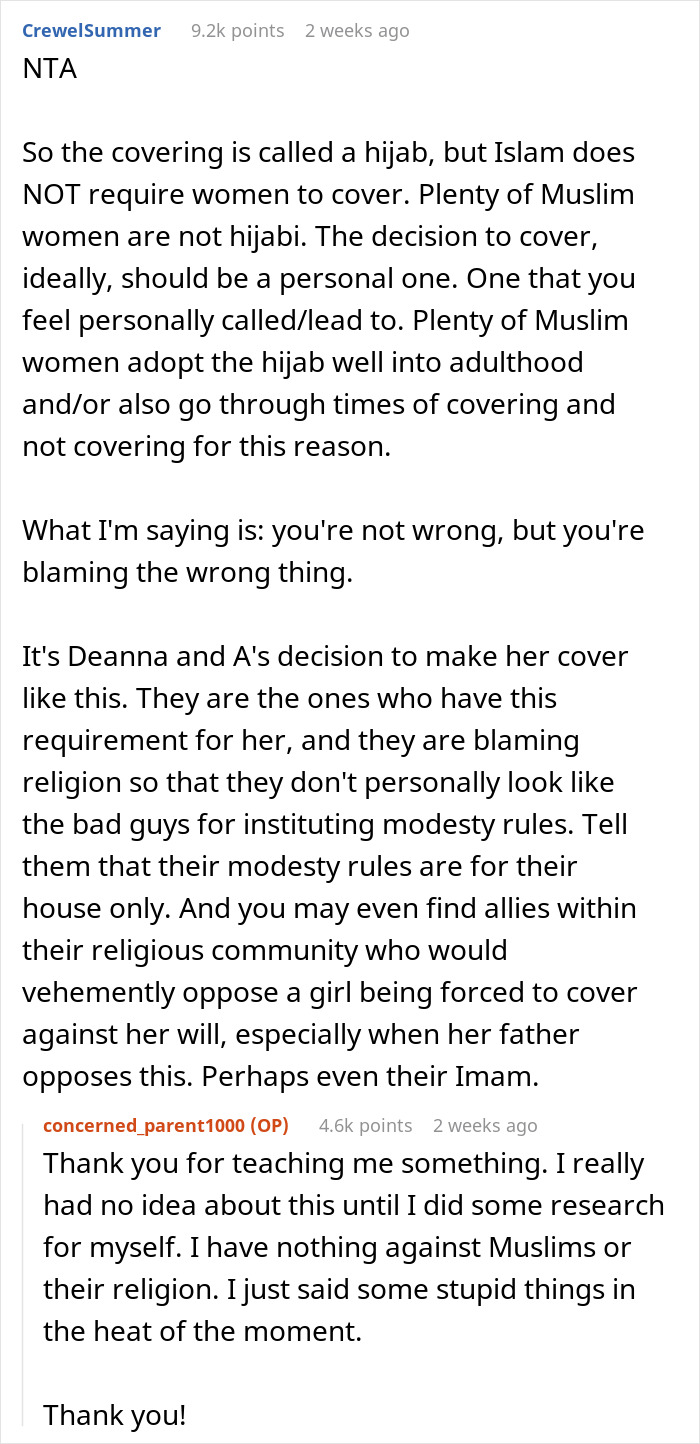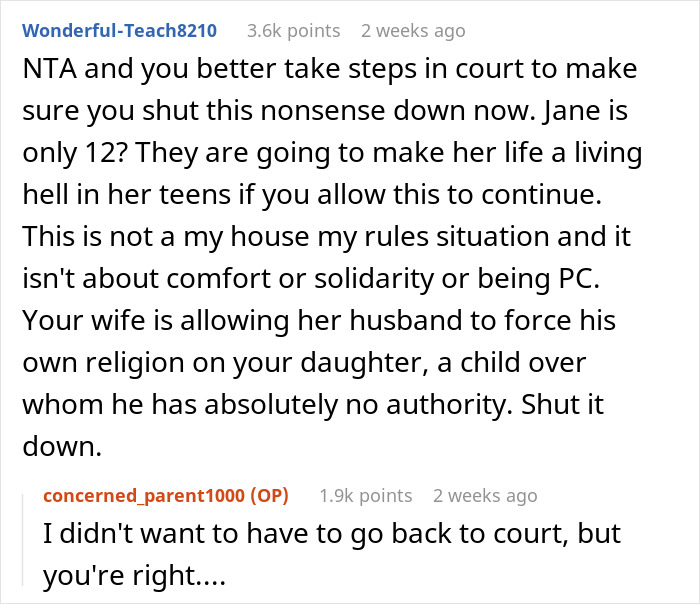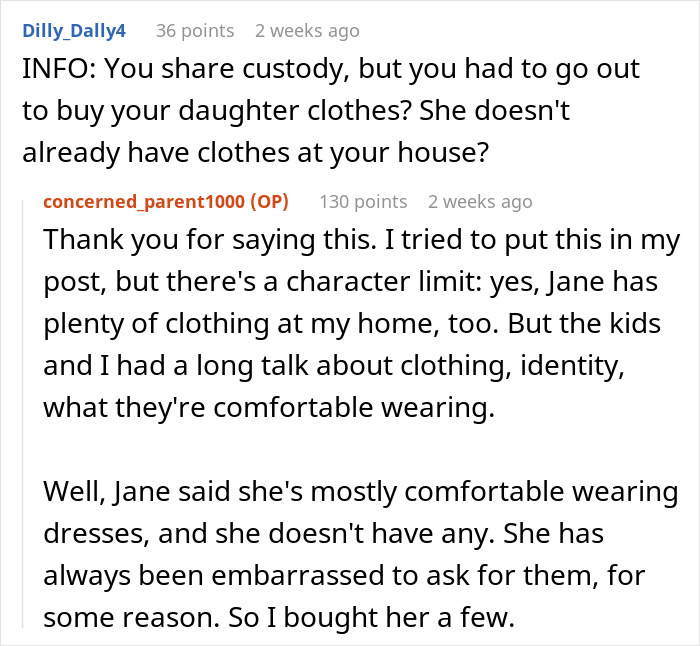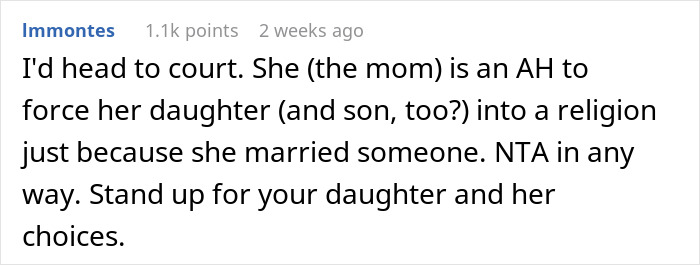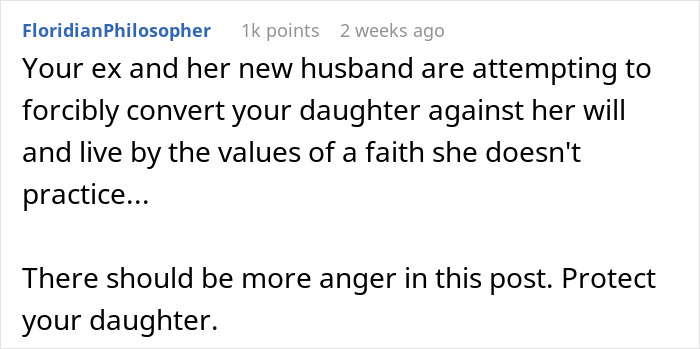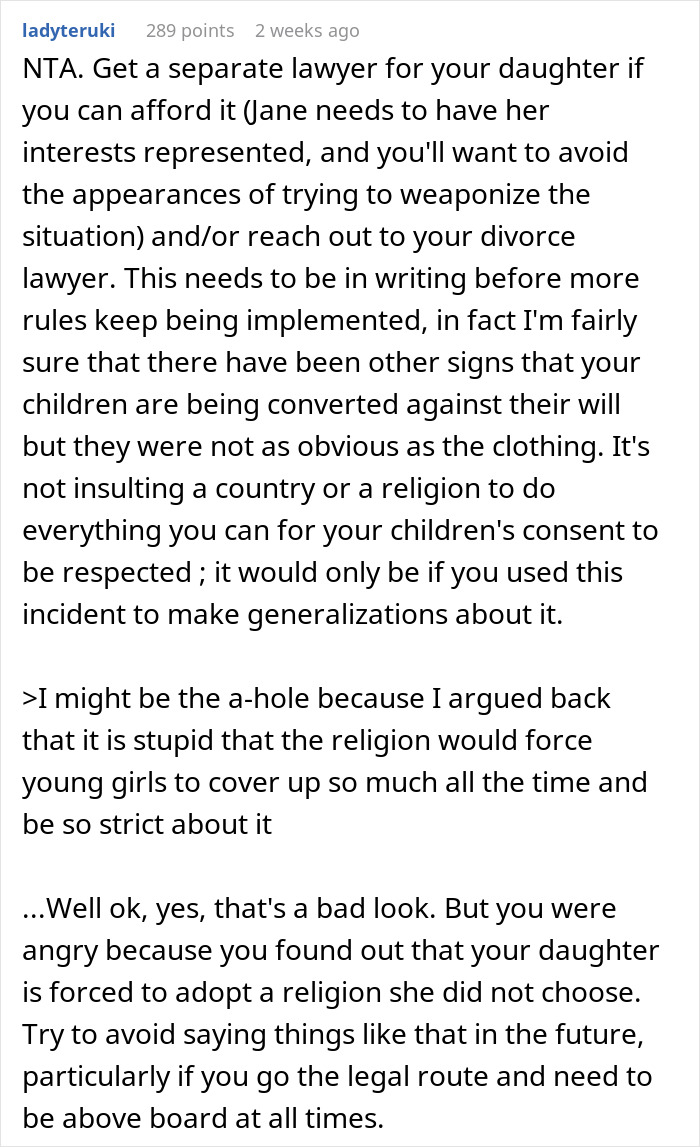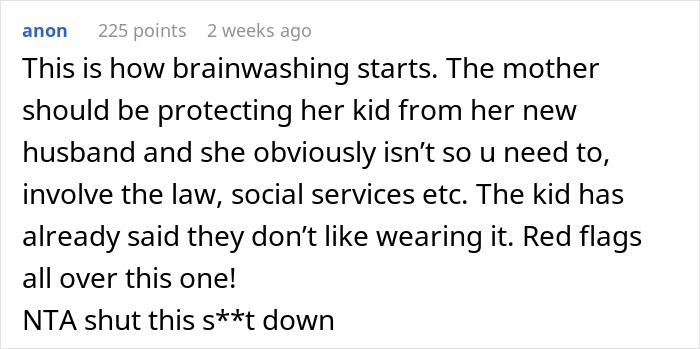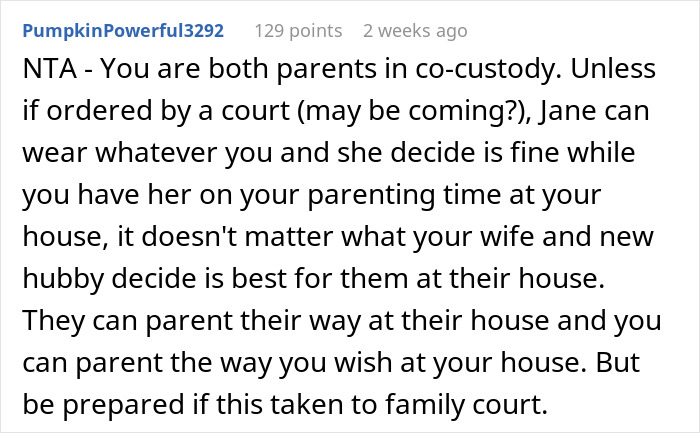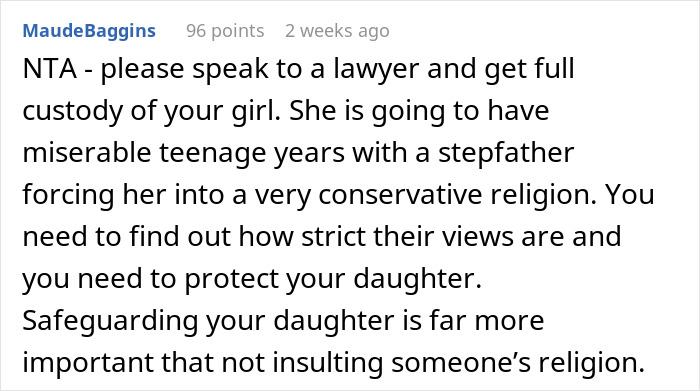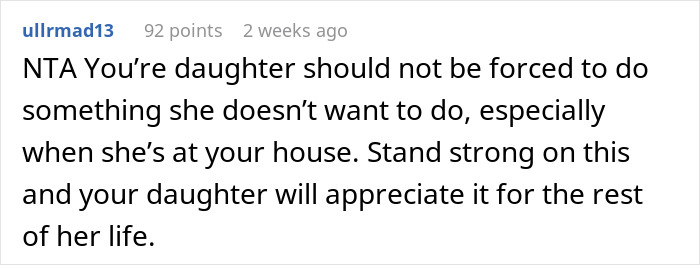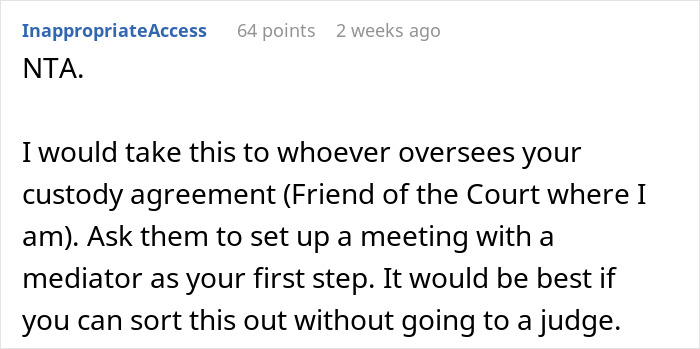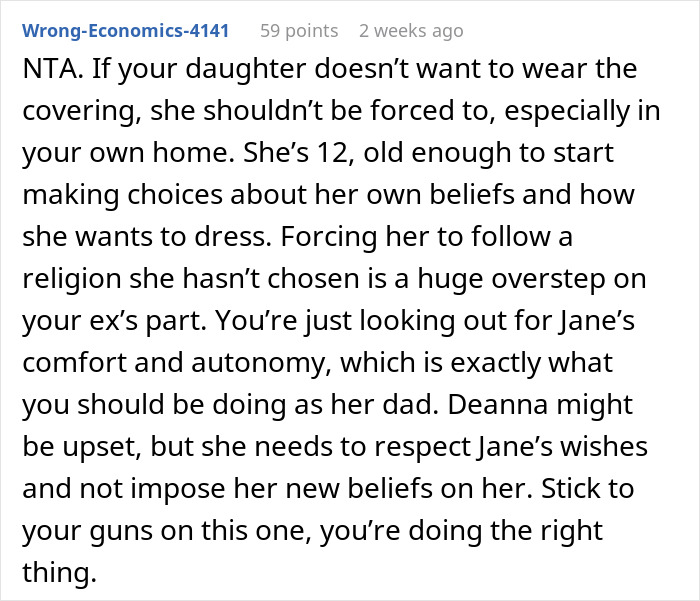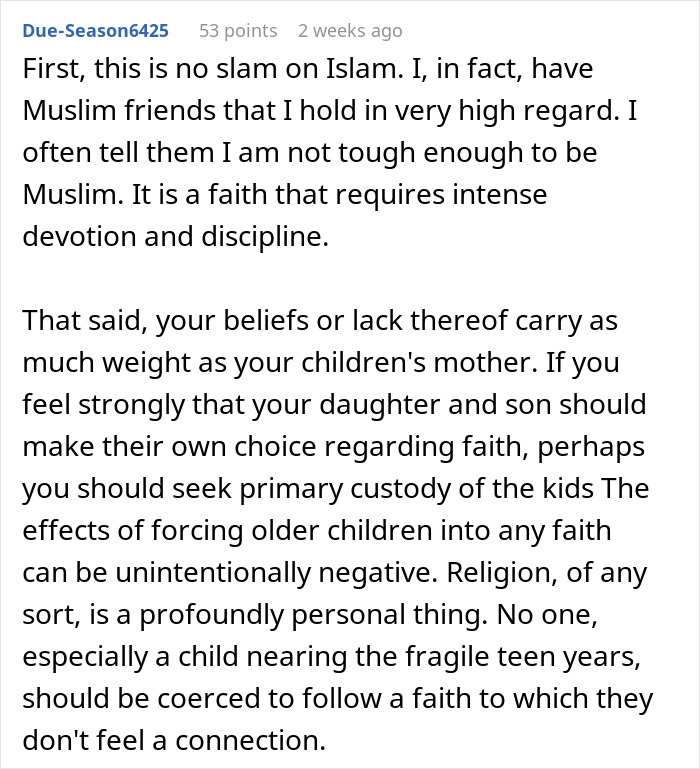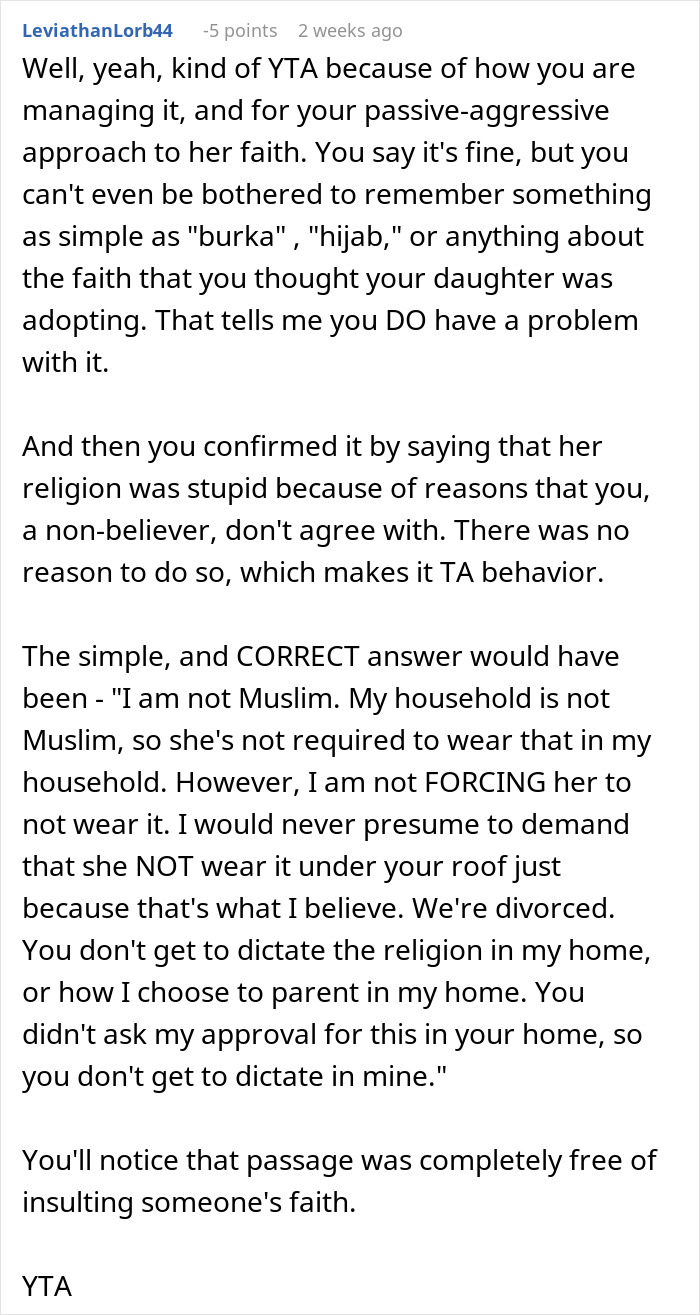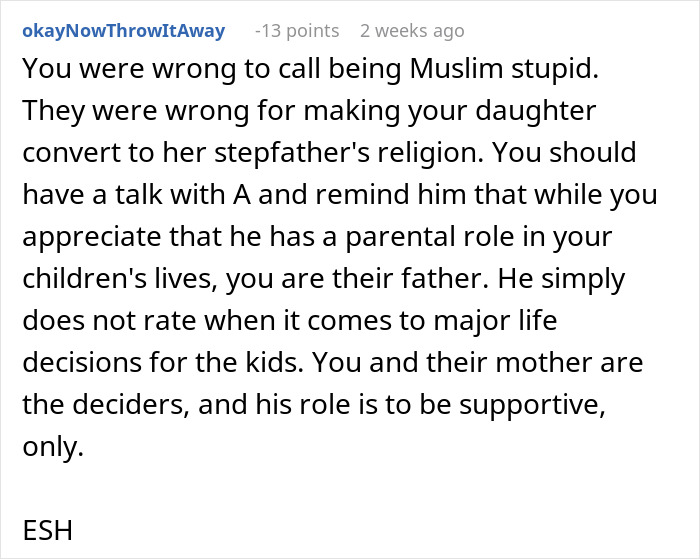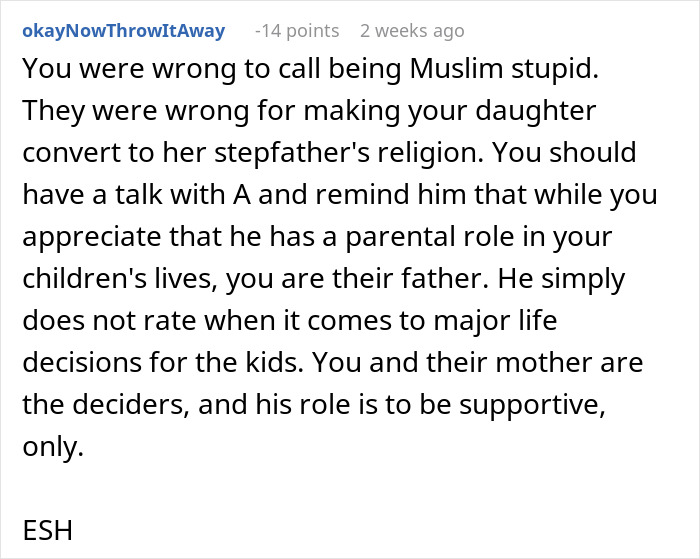One father recently reached out to the “Am I the [Jerk]?” subreddit detailing an argument he had with his ex-wife after she started expecting their daughter to wear a hijab. Below, you’ll find all of the details, as well as some of the replies readers left the dad.
This man’s ex-wife has started wearing a hijab since she remarried and converted to Islam
Share icon Image credits: halfpoint/Envato (not the actual photo)
And she was furious to find out that her children’s father wasn’t enforcing the same rules about clothing in his home
Share icon Image credits: LightFieldStudios/Envato (not the actual photo)
Share icon Image credits: Deasyjunitad/Envato (not the actual photo)
Share icon Share icon
Share icon Image credits: zamrznutitonovi/Envato (not the actual photo)
Image credits: concerned_parent1000
About 85% of people around the world are religious
Religion can be a very delicate subject. It’s important to respect everyone else’s views and refrain from making assumptions about them based on their religion, regardless of what kinds of experiences you’ve had in the past. According to Population Education, a whopping 85% of people around the world identify with a religion. And nearly a quarter of the global population practices Islam. There are around 2 billion Muslim people on the planet, making up about 13% of Indonesia, 11% of India, 10.5% of Pakistan, and 8.4% of Bangladesh. But, of course, there are also pockets of people practicing Islam scattered all across the globe. One aspect of Islam that you might be familiar with is the hijab. A hijab is a headscarf commonly worn by Muslim women, but it has much more significance than simply being an item of clothing. ABC News explains that the name hijab can be translated to mean “veil of protection” or “spiritual veil” that is intended to protect those wearing it from negative influences.
Many Muslim women choose to wear hijabs for personal reasons
Share icon Image credits: Danang Wicaksono/Pexels (not the actual photo) The idea of hijab can be practiced not only by wearing a head covering, but also by practicing certain mannerisms and maintaining morals and virtues. When it comes to why people choose to wear hijabs, modesty is an important factor. The Qur’an instructs both men and women to act modestly, and many women choose to do so by covering their hair. And yes, for most women, particularly in the West, they do make a choice whether or not they’d like to wear a hijab, ABC News notes. In fact, it’s a very personal choice for many women, and some find that they much prefer wearing one to not. “To me, it felt that I was in control [of] who could say what [to me],” Muslim journalist Shazma Gaffoor told ABC News. “When people speak to me, there is this veil of respect … where they speak to me rather than objectify me. I’ve not felt objectified at all, since I’ve [started wearing] the hijab whilst in many instances, I felt objectified prior to wearing the hijab.” However, in this particular story, it sounds like Jane has had no choice in whether or not she wants to wear a hijab. And it’s not fair to force her to wear one, especially when she doesn’t even practice Islam. Forcing her to do, or wear, something she hates certainly won’t encourage her to be curious about Islam or consider ever converting in the future.
Everyone has the right to choose their own religion
We all deserve to be able to choose our own religion (or lack thereof). And when it comes to why we shouldn’t pressure children into one particular religion, Global Comment notes that religious trauma is a huge factor. One 2023 study found that about one third of adults in the United States have experienced religious trauma at some point in their lives. This is a major reason why people will walk away from their faith, with about one fifth of formerly religious individuals citing trauma as the reason they left. But it isn’t the only one. Over half also decide to leave religion behind for intellectual reasons or because they outgrew their faith, the American Psychological Association reports. Another 11% give up on their beliefs due to social reasons, such as a church or religious community being unwelcoming. Parents may believe that indoctrinating their kids into a certain religion from a young age will ensure that they’ll hold fast to those beliefs, but that simply isn’t the case. In fact, it can damage relationships between the parent and kids and make them even less likely to practice any religion in the future. We would love to hear your thoughts on this story in the comments below, pandas. Do you think this father did anything wrong? Then, you can find another Bored Panda article discussing similar themes right here!
The majority of readers took the father’s side, and he joined in on the conversation
Some also shared concerns about the children and provided advice for the dad
Share icon
However, some thought that the father could have handled the situation more delicately
Anyone can write on Bored Panda. Start writing! Follow Bored Panda on Google News! Follow us on Flipboard.com/@boredpanda!

